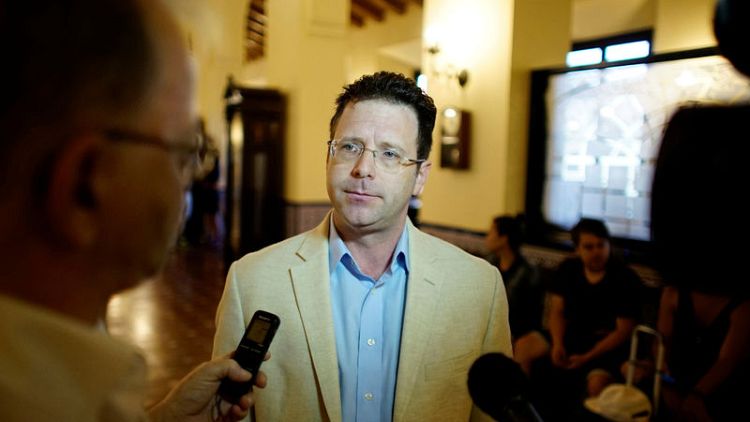By Marc Frank
HAVANA (Reuters) - Representatives of U.S. agribusiness, the farming lobby and related industries opened a three-day conference in Cuba on Thursday aimed at increasing sales and cooperation with a country that the administration of U.S. President Donald Trump has repeatedly lambasted and promised to tighten sanctions on.
The U.S. Agricultural Coalition for Cuba, which seeks increased trade with Cuba and the lifting of the trade embargo, is sponsoring the event.
U.S. farmers and agribusinesses have sold $5.7 billion (£4.3 billion) in food to the Communist-run Caribbean island since 2000, when an amendment to the trade embargo allowed agricultural sales for cash, according to the U.S.-Cuba Trade and Economic Council, a New York-based organisation that monitors the bilateral trade.
Cuba imports up to $2 billion a year in food products. U.S. farmers want a larger piece of the pie, but are stymied because Cuba cannot make purchases on credit and there is no U.S. trade cover as with other countries, according to Paul Johnson, co-chair of the U.S. Agricultural Coalition for Cuba.
"Rural America supported President Trump and will continue to support President Trump and we want him to remember those people also want to open up the Cuban market," he told Reuters.
Trump has promised to undo the gradual improvement of relations with Cuba begun by his predecessor, President Barack Obama, and has drastically reduced staff at the U.S. Embassy in Havana and Cuba's Embassy in Washington.
However, much of the economic relationship, from food sales to travel and communications, remains partly due to the political clout of organizations such as the coalition.
Johnson said trade had not met its potential and changes under way in Cuba, including market oriented reforms and a new president without Castro as a last name, represented an opportunity to be grasped.
Republican Congressman Rick Crawford from Arkansas, whose state was a major exporter of rice to Cuba before the Revolution, made the opening remarks at the conference.
He later told Reuters "polling shows the majority of Americans favour improved relations" despite opposition from hard line Cuban exiles, many of whom are in Florida. "There are 49 other states," he said.
Crawford added that the trade embargo on Cuba had failed to drive any substantial political changes since it was imposed in 1961. Supporters of the embargo say that Cuba must be punished for nationalizing businesses and it contains the spread of Communism close to U.S. shores.
The agricultural coalition is made up of more than 100 farm and industry groups, from the American Farm Bureau Federation and American Soybean Association to the National Association of Wheat Growers and National Farmers Union.
(Reporting by Marc Frank, additional reporting by Nelson Acosta, editing by G Crosse)
